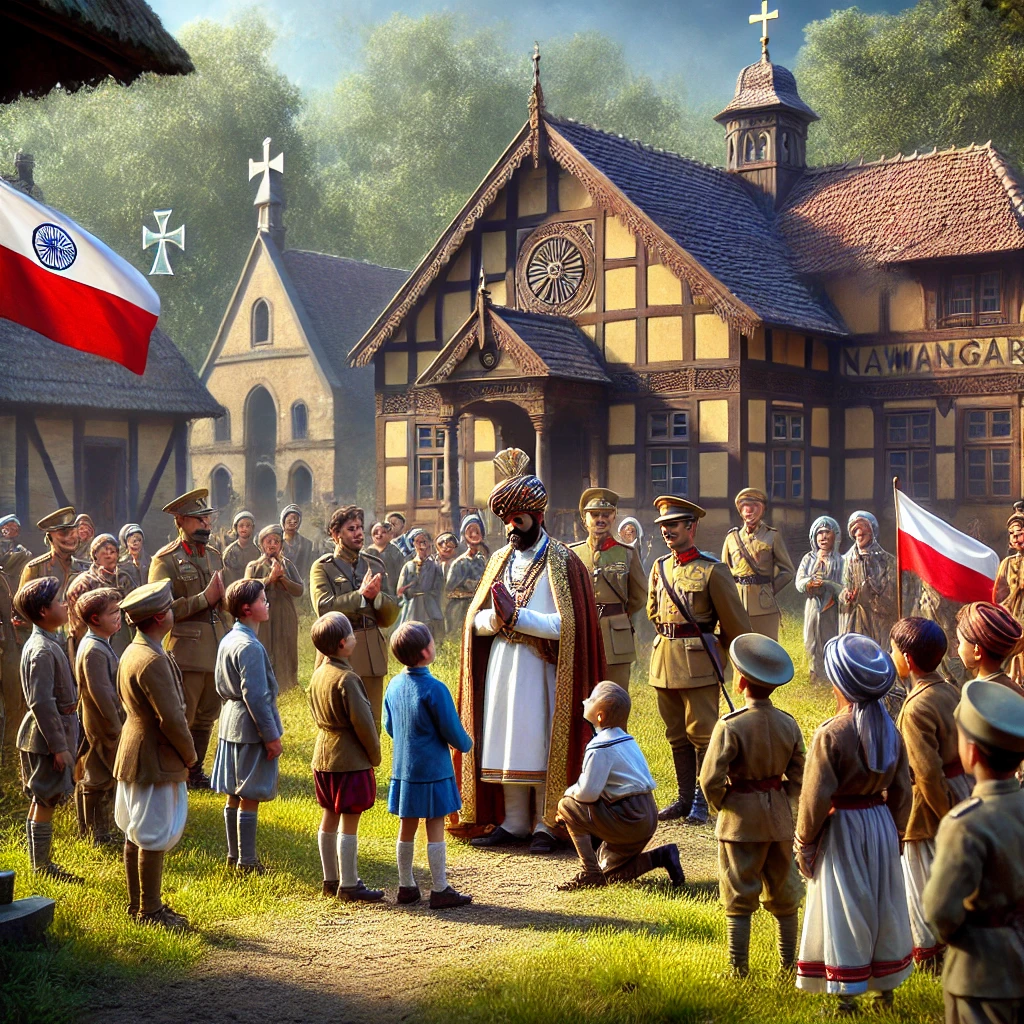During World War II, while much of the world was embroiled in conflict and devastation, an extraordinary story of humanity and compassion unfolded in a small Indian princely state. Maharaja Jam Sahib of Nawanagar, an autonomous ruler under British-ruled India, extended a hand of kindness that would forever bind two distant nations—India and Poland.

The Outbreak of War and the Polish Exodus
In 1939, as Nazi Germany and the Soviet Union invaded Poland under the Molotov-Ribbentrop Pact, millions of Polish citizens were caught in the crossfire. Among them were thousands of children and women, forced to flee their homes in search of safety. With Europe engulfed in war and countries hesitant to accept refugees, their journey was fraught with uncertainty and despair.
A Beacon of Hope: Arrival in India
In 1941, a ship carrying around 1,000 Polish children and women arrived at an Indian port. The then British government in India, wary of controversy, was reluctant to offer them asylum. However, Maharaja Jam Sahib Digvijaysinhji Ranjitsinhji, the ruler of Nawanagar, defied the odds and welcomed these refugees with open arms.
Establishing Balachadi: A Sanctuary for Polish Refugees
The Maharaja personally funded and established a camp named Balachadi, located 25 kilometers from Jamnagar, where the children could find safety and comfort. The camp was more than just a shelter—it was a haven where the children could retain their cultural identity. The Maharaja ensured that Polish food was prepared, a chapel was built, and cultural activities were regularly conducted. His palace was converted into a school, and a library stocked with Polish books was created to educate the children.
A Lasting Bond Between India and Poland
After the war ended, the children returned to Europe, but the bond between them and the Maharaja remained strong. Poland never forgot this act of kindness. The Maharaja was honored with the President’s Medal, Poland’s highest civilian award. Today, in Warsaw, a square is named after him—Good Maharaja Square—and a school in Poland bears his name, continuing his legacy of education and compassion.
Conclusion
Maharaja Jam Sahib’s story is a testament to the power of humanity during the darkest times. His actions not only saved lives but also forged a lasting connection between two nations, proving that even in war, there is room for compassion and kindness.